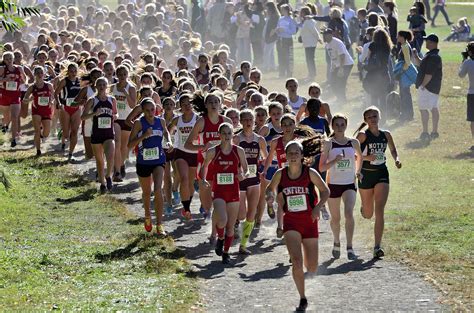Introduction
Cross country recruiting is a competitive and demanding process that requires athletes to strategically navigate a complex landscape and optimize their chances of securing the best opportunities. This comprehensive guide will empower athletes and parents with the knowledge and strategies necessary to successfully navigate the cross country recruiting journey.

Pain Points in Cross Country Recruiting
- Intense competition for limited roster spots
- High expectations and academic requirements
- Financial concerns and scholarship limitations
- Lack of transparency and clear communication
- Limited opportunities for small-town or underrepresented athletes
Motivations for Cross Country Recruiting
- Pursue higher education while continuing athletic pursuits
- Enhance athletic skills and training
- Access top-notch facilities and coaching
- Secure financial support for college expenses
- Achieve competitive success at the collegiate level
Effective Strategies for Success
1. Build a Strong Academic Foundation
- Maintain a high GPA and standardized test scores
- Take rigorous coursework, including honors and AP classes
2. Enhance Athletic Performance
- Train consistently and effectively
- Attend summer camps and clinics
- Compete in high-level races and events
3. Create a Professional Online Presence
- Establish a personal website or athletic profile
- Maintain active social media accounts
- Showcase race results, personal bests, and training videos
4. Network with Coaches
- Attend college fairs and track meets
- Reach out to coaches via email or phone
- Express interest and provide relevant information
5. Visit Prospective Schools
- Schedule unofficial and official visits
- Meet with coaches and team members
- Get a sense of the campus environment and academic offerings
6. Secure Academic and Athletic Scholarships
- Research scholarship programs and eligibility requirements
- Submit strong applications and essays
- Negotiate scholarship offers carefully
Common Mistakes to Avoid
- Underestimating the importance of academics
- Overlooking smaller programs or less popular schools
- Failing to prepare for official visits
- Contacting too many coaches simultaneously
- Being overly aggressive or presumptuous
- Neglecting character and integrity
Timelines and Deadlines
Freshman Year (Summer and Fall):
- Attend track meets and camps
- Maintain a high GPA and standardized test scores
- Establish an online presence
Sophomore Year (Fall and Spring):
- Start contacting coaches
- Visit prospective schools
- Secure scholarship offers
Junior Year (Summer and Fall):
- Finalize college choice
- Commit to a school and sign NLI
- Prepare for academic and athletic success
Key Statistics
- According to the NCAA, there are over 300,000 student-athletes participating in cross country nationwide.
- The average scholarship amount for Division I cross country athletes is $20,000 per year.
- Less than 1% of high school cross country athletes earn athletic scholarships to Division I schools.
Resources for Athletes and Parents
- NCAA Cross Country Recruiting Guide
- National Federation of State High School Associations (NFHS)
- College Board
- Cross Country Coaches Association of America (CCCAA)
Conclusion
Cross country recruiting is a challenging but rewarding process. By embracing a proactive mindset, showcasing abilities, networking effectively, and avoiding common pitfalls, athletes can maximize their opportunities and secure the best可能的 outcome. With perseverance, dedication, and a strong support system, cross country athletes can conquer the recruiting journey and achieve their collegiate dreams.
